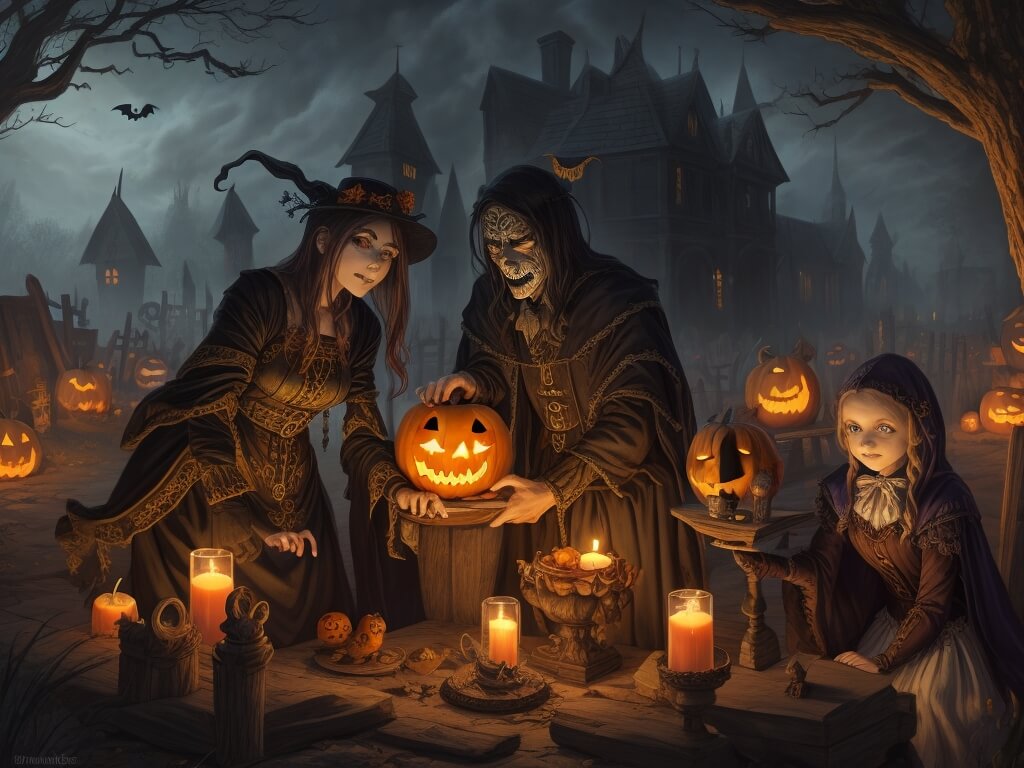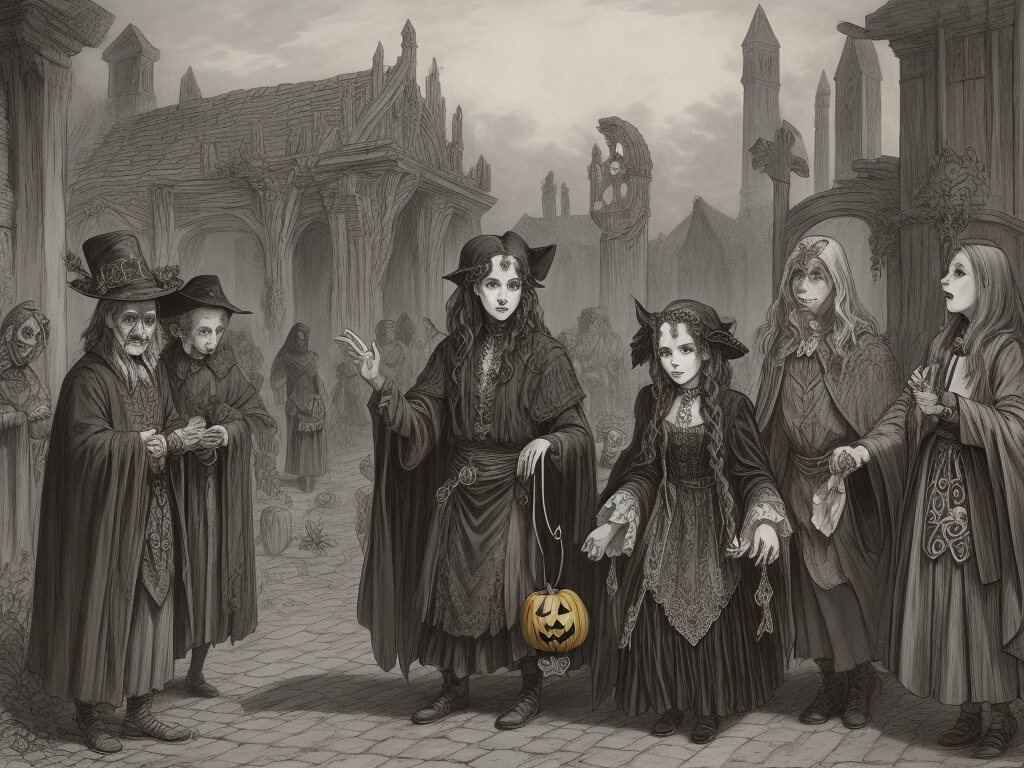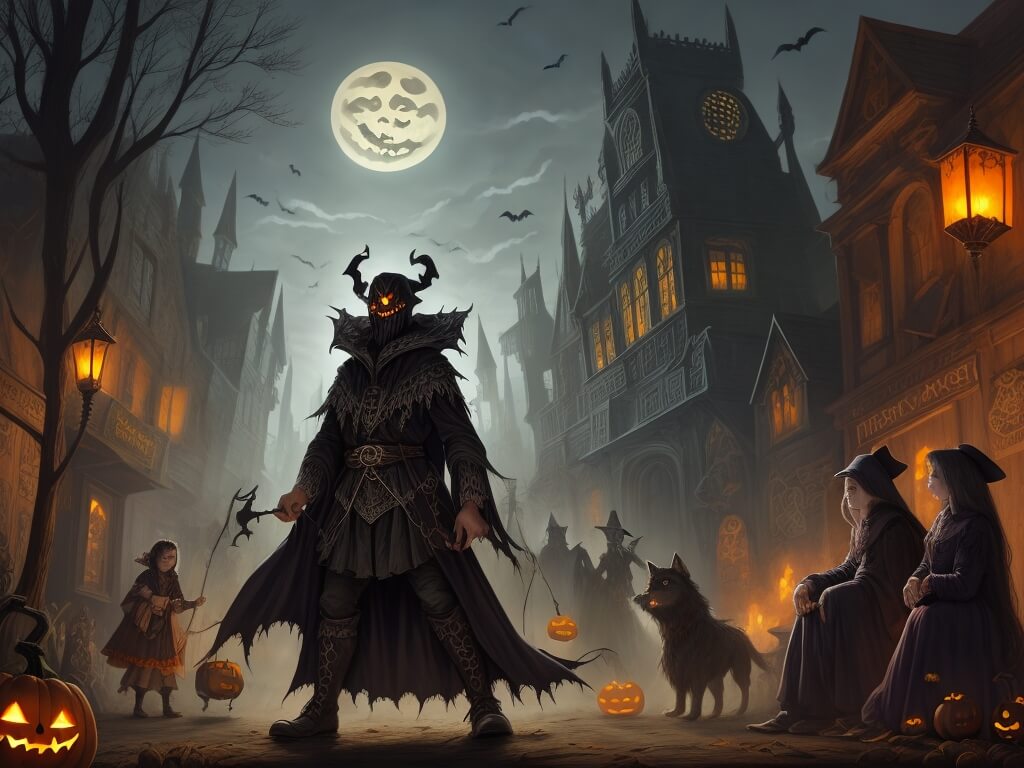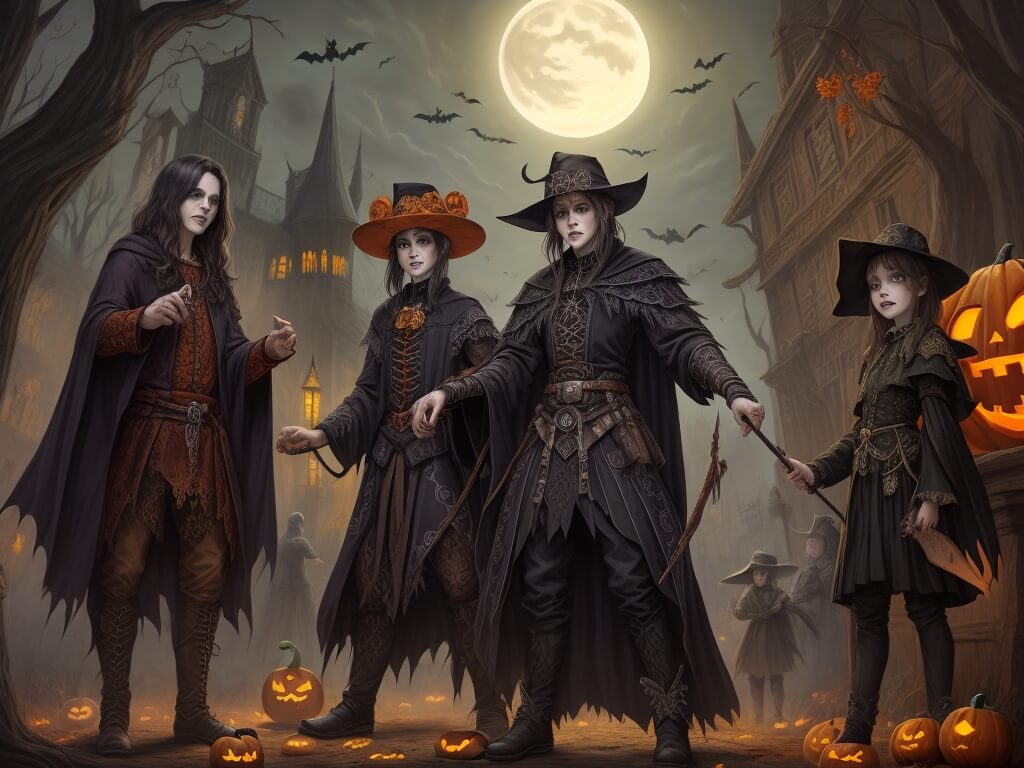Discover the fascinating history of Halloween, tracing back to the ancient Celtic festival of Samhain and its eerie traditions. Ancient origins of Halloween.

The Ancient Origins of Halloween
Halloween, a beloved holiday with roots reaching back over two millennia, finds its origins in the ancient Celtic festival known as Samhain, pronounced “sow-in.” The Celts, a people who inhabited regions now encompassing Ireland, the United Kingdom, and parts of northern France, marked their new year on November 1. This day signified the conclusion of summer, the harvest season, and the onset of the dark and frigid winter, a time often associated with death in the natural world.
The Celts held a profound belief that during the night just before the new year, the boundary separating the realms of the living and the dead became thin and porous. It was on the evening of October 31 that they celebrated Samhain, a festival steeped in the belief that the spirits of the departed returned to the earthly realm on this night.

The Haunted History of Halloween
The presence of these spectral beings was not merely a matter of folklore; the Celts believed they could bring about trouble and wreak havoc, even causing harm to their crops. This thinning of the barrier between worlds was thought to facilitate the Druids, Celtic priests, in making predictions about the future. To an ancient society intimately connected to the unpredictable forces of nature, these prophecies provided much-needed solace as they braced for the harsh, desolate winter ahead.
In honor of Samhain, the Druids constructed monumental sacred bonfires where the community congregated. These fires served as a place for the ritualistic burning of crops and animals as offerings to Celtic deities. During these festivities, the Celts would don costumes, typically fashioned from animal heads and skins, and sought to divine each other’s fortunes.
After the celebration concluded, they rekindled their household hearth fires, which had been intentionally extinguished earlier that evening, using flames from the sacred bonfire. This practice was believed to offer protection during the impending winter months.

Roman Influence on Halloween
By A.D. 43, the Roman Empire had extended its dominion over a substantial portion of Celtic territory. Over the course of the four centuries they ruled in these lands, two Roman festivals were incorporated into the traditional Celtic celebration of Samhain.
The first of these was Feralia, a late October day during which the Romans paid tribute to the deceased. The second was a day dedicated to Pomona, the Roman goddess associated with fruit and trees. Pomona’s symbol was the apple, and the integration of this Roman celebration likely provides the origin of the tradition of “bobbing for apples,” a popular game that persists in Halloween festivities to this day.

Modern Halloween
The amalgamation of these ancient Celtic and Roman traditions forms the basis of what we now recognize as Halloween. While the holiday has transformed significantly over the centuries, it still carries echoes of its venerable past, as we continue to celebrate the eerie, the mysterious, and the mystical on October 31st. Today, Halloween is a holiday cherished not only for its rich history but also for its contemporary customs, including costume parties, haunted houses, trick-or-treating, and the enjoyment of an array of sweets and treats.